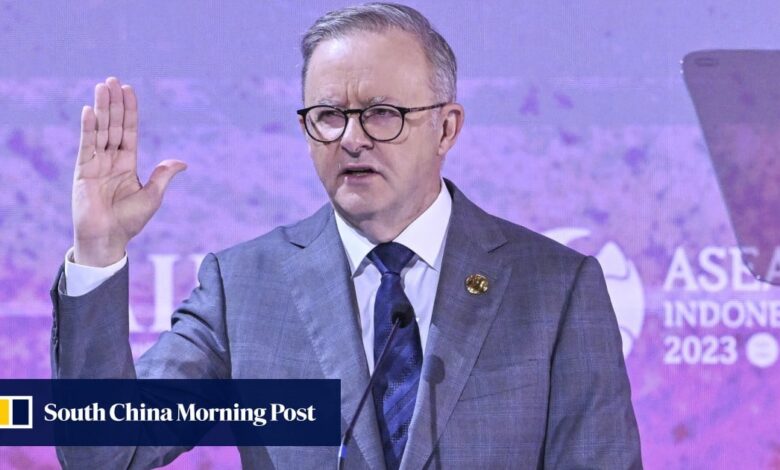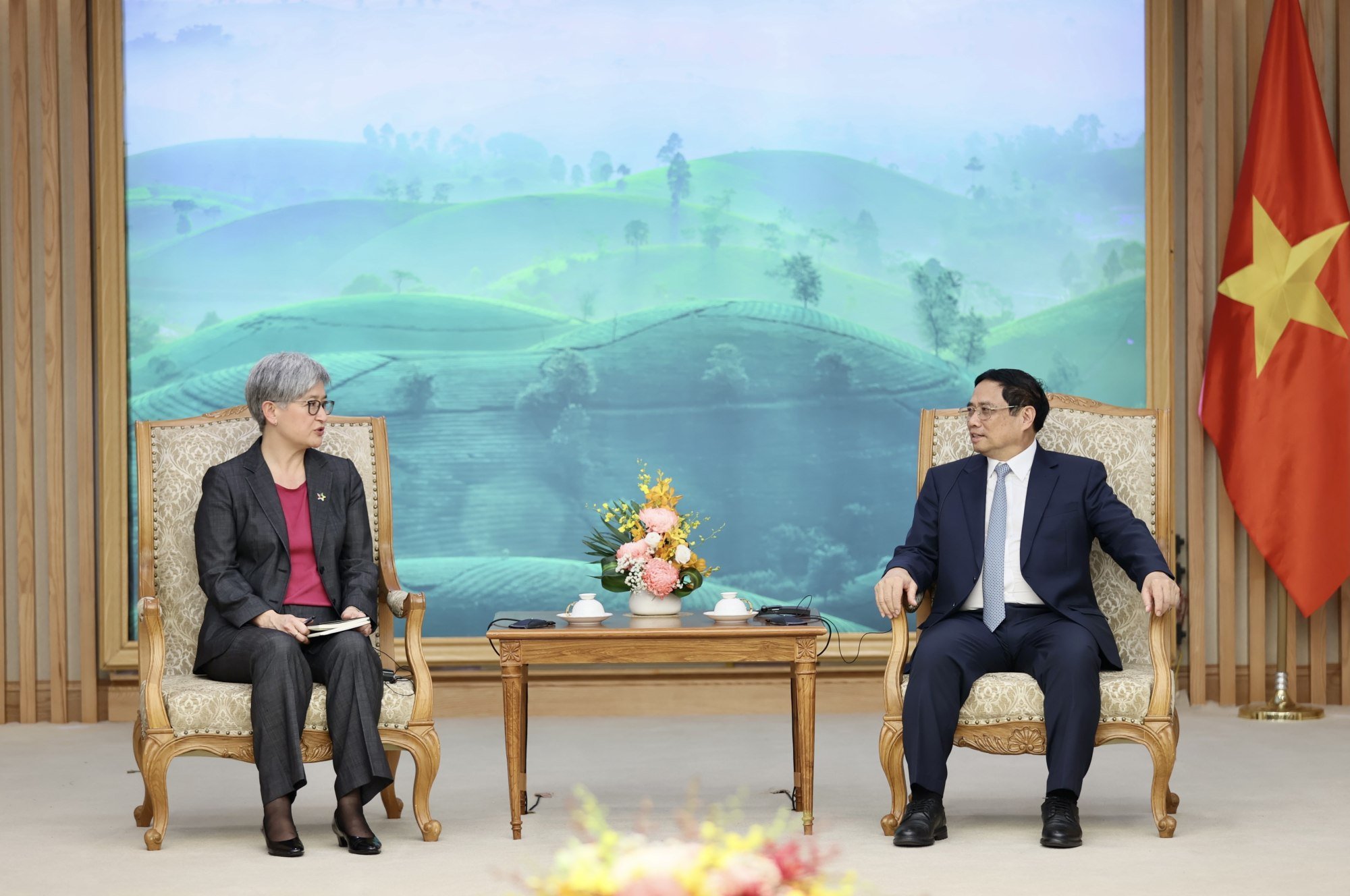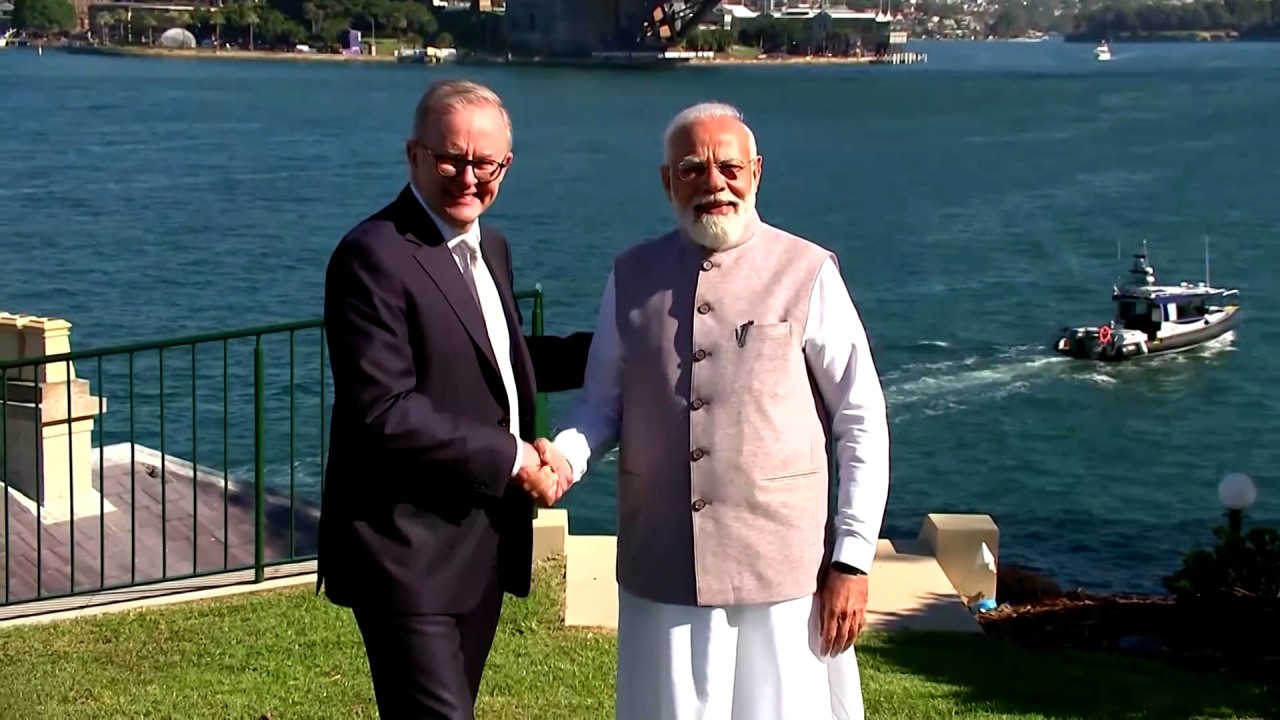Asean summit: Australia unveils ‘most significant’ blueprint to boost trade with region

[ad_1]
Canberra has unveiled an economic blueprint to do more business with Southeast Asia, including an immediate pledge of A$70 million (US$44.7 million) towards a new Australian “deals team” based in the region.
“Today, I announce our government’s strategy for the most significant upgrade of Australia’s economic engagement with Asean for a generation,” he said in a speech at the Asean Indo-Pacific Forum during the summit.
“An overdue strengthening of our engagement to reflect the speed of the transformation under way – and the scale of the opportunities ahead.”
Australia wants to court Southeast Asia, but its affections seem to be skin-deep
Australia wants to court Southeast Asia, but its affections seem to be skin-deep
Canberra also immediately committed nearly A$20 million to a Southeast Asia Business Exchange that would boost trade, as well as A$6 million towards a placement and internship pilot programme for young professionals from the region.
During a press conference, Albanese said he was determined to fix Australia’s lacklustre direct investments in Southeast Asia.
“By 2040, Asean will be the fourth-largest single market after the US, China and India. It’s a huge opportunity for Southeast Asia, it’s a huge opportunity for Australia,” Wong said.
Australia’s direct investments in Southeast Asia last year totalled A$28 billion, compared with A$29 billion in 2014.

The comments by the two Australian ministers came as new data shows strong interest by companies from around the world to invest in Southeast Asia.
Additionally, on average, international companies are expecting a 23.2 per cent rise in their direct investments in Asean markets in 2023, up from a 20.1 per cent increase last year. The US and Gulf Cooperation Council countries are the most optimistic about Southeast Asia, according to HSBC.
Other recommendations in Australia’s new blueprint include reductions in barriers to entry into Australia such as fewer regulatory burdens to Southeast Asian investors looking to invest in Australia.
The blueprint also looked at ways to increase business between Australia and Southeast Asia in these specific industries, agriculture and food, resources, green energy transition, infrastructure, education and skills, visitor economy, healthcare, digital economy, professional and financial services and creative industries.
Melissa Conley Tyler, executive director of the Asia-Pacific Development, Diplomacy & Defence Dialogue, said Wednesday’s financial pledges by Canberra showed it was heeding the advice that an “activist approach” was key to better economic engagement with Southeast Asia.
Deborah Biber, chief executive of the Australia Asean Chamber of Commerce agreed, saying that Australia’s success with Southeast Asia would come from more “action and funding of planned activities”.
“It’s not about the amount of monies committed, but where and how they will be used. Building more bureaucracy is not going to yield results,” she said.
[ad_2]
Source link





